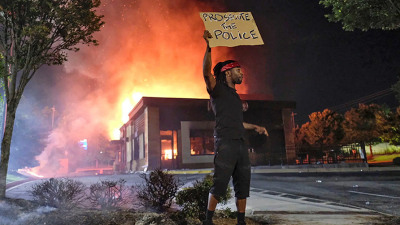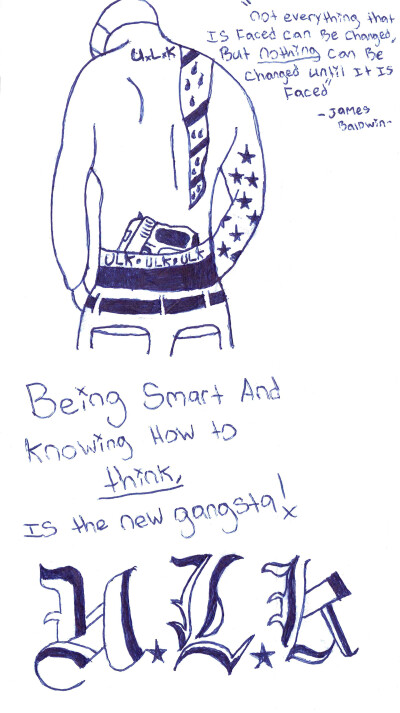Peace be unto you… Thank you for providing me, the much needed
information on AIPS-GA/Outside Reports.
Those warehoused and enslaved within this illicit system,
particularly at Telfair State Prison (i.e. Koncentration Kamp), are
subjected to unprecedented hazards. The entire staff is not being
screened for COVID-19, upon reporting to work daily. The staff continues
to interact with those of us held captive, without wearing any PPE
(i.e. Masks or gloves), even while serving the units at meal times.
Units of korruption officers from various kamps, forming what they
call a tactical squad, come to this facility to shake us down
frequently. Countless outside visitors employed with the state are
permitted to enter the facility without being screened as if they are
immune to catching or spreading the coronavirus. Mind you, that the
state cancelled all family visits in March, so no one has been able to
see a family member since that time.
What is the difference between them going home and any place of their
desire and then returning here possibly exposing us to COVID-19, or
allowing our families which live in the same society as they do to come
visit us?
The chemicals (or lack thereof) that are given are watered down so
much that their ability to effectively clean and sanitize is
questionable. The drinking water is tan or brownish due to the piping
being rusted out. The food being slopped together will not satisfy a
three year old. Nor does it meet the required calorie standards
recommended for adults.
Amid the federal declaration of national emergency; issued on or
around the thirteenth day of March 2020, in response to the COVID-19
pandemic, little to virtually no cohesive measures have been implemented
within the Georgia Department of Korruption (i.e. GDC), to protect the
lives of the country’s most vulnerable population; Its prisoners!
In fact, prisoners are forced to exist in congregate settings. Where
physical social distancing is all but impossible. Adversely, inherently
enhancing our enslavement sentences; to that of a sentence of death.
Because we are not at all able to effectively protect ourselves from
this pandemic. That has now taken well over four hundred thousand lives
in the U.$. [as of January 2021].
For, it is essential that the humanity of those being held captive be
reevaluated at once. Because: Prisoners’ Lives Matter, as well!
The nature of COVID-19 requires an unprecendented and empathic
response. The states have taken up many measures to curb the pandemic,
in free society. With little success at slowing the spread of this
virus; as evidenced by the 23 million who have now tested positive, just
within the U.$. [as of January 2021].
The Georgia Department of Korruption; governor of Georgia: Brian
Kemp; the Department of Injustice (i.e. DOJ), nor have the United $tates
Attorney General: Wiliam Barr, thought it to be necessary to act upon
implementing actions to release those held within their state and
federal kamps that have not been sentenced to death.
For, it is no secret, that the state kamps are understaffed and
overcrowded with vulnerable citizenry. These koncentration kamps are
unsanitary and unfit for humans to exist in. They are insufficient in
providing adequate nutritional supplement for those of us that are being
held captive. The level of medical care provided is egregiously
inadequate.
Reducing every facility to susceptible petri dishes for infectious
disease outbreaks.
In fact! Eight of the ten clusters of the coronavirus are located
within state Korrectional facilities, according to the: New York Times
(in July 2020). For though many state have increased COVID-19 testing,
the country’s prison system maliciously refuses to test those being held
captive, within its vile entity.
For it is the duty of those in office, to use every tool available to
prohibit this pandemic from claiming anymore lives. The conventional
philosophic way that has become our approach to civility is morally
despicable. We cannot pick and choose, who amongst us are deserving of
being saved. For that is the creator’s job!
We must prioritize the safety and well-being of as many people as
humanly possible.
The United States are quick to censure a variety of countries, due to
the way those countries treat their citizenry. While all along treating
their own citizenry much worst.
The demographics of the cruelty that already existed within the
illicit prison system of the United States, did not need the addition of
COVID-19, included to the many different forms of weaponized impunity
that already exist within a system designed to tear a person down.
The United $tates’ prison system was designed to be a governmental
body to enslave New Afrikan people to rebuild the southern states, which
relied on slave labor to bolster the economy. This is officially
documented in the Thirteenth Amendment.
Prisons were not designed to be a death chamber for those accused of
breaking the so-called law. The perception of government in the
nineteenth century was to make the public think that the nations’
prisons were places of rehabilitation. There is no rehabilitation going
on behind these enemy lines. Just death! All that exist is Kruel
treatment by Korrupt bigots and their house nigga’s, which thrive on
dehumanizing human-beings to augment their own self-worth.
It is now time to unlock these chains and cages, before they are
responsible for the deaths of thousands.
Prisoners’ Lives Matter!










